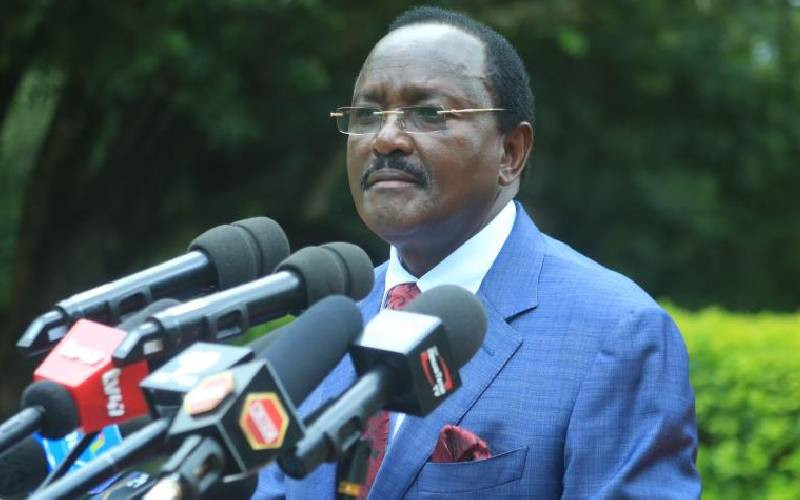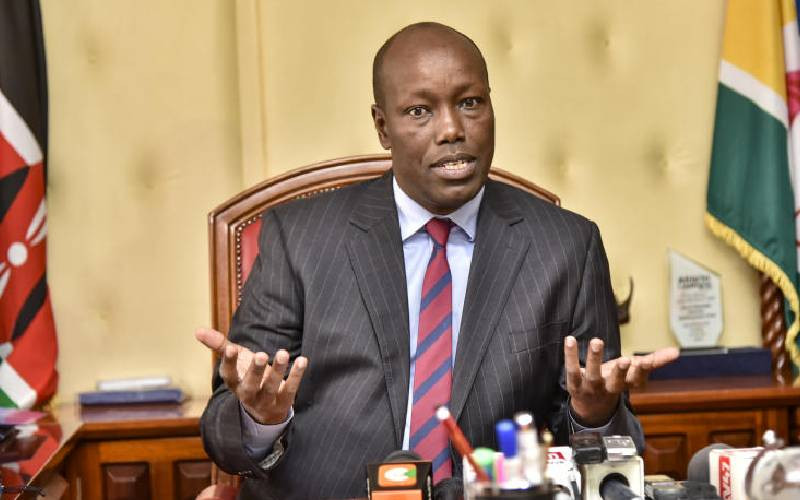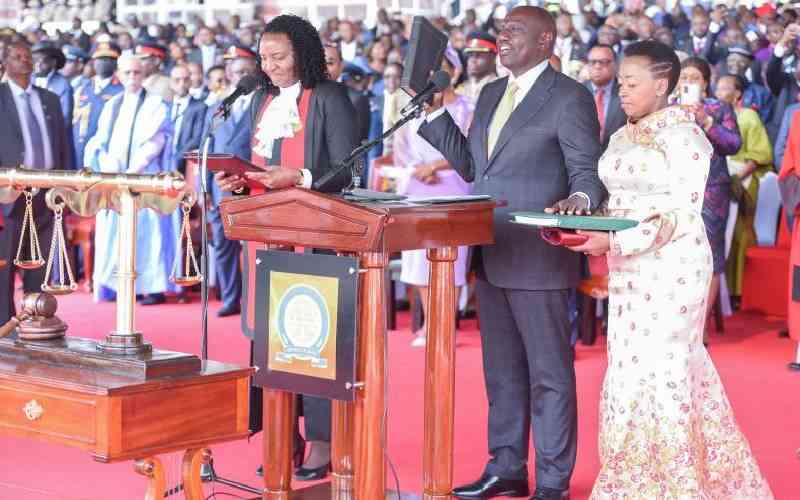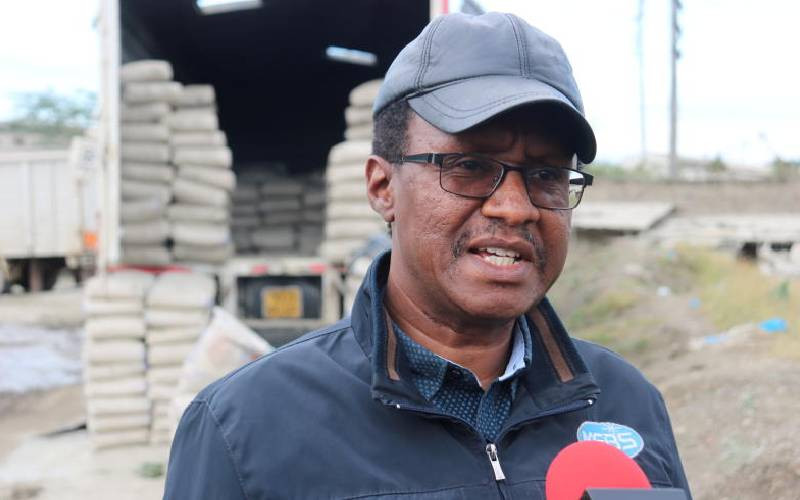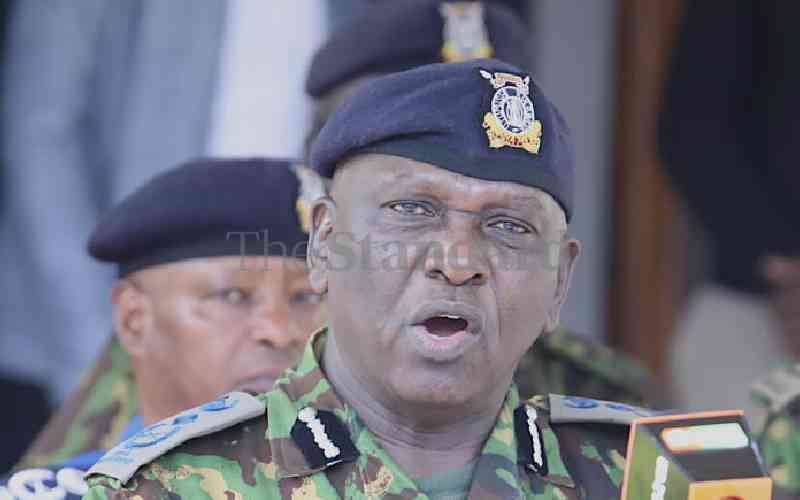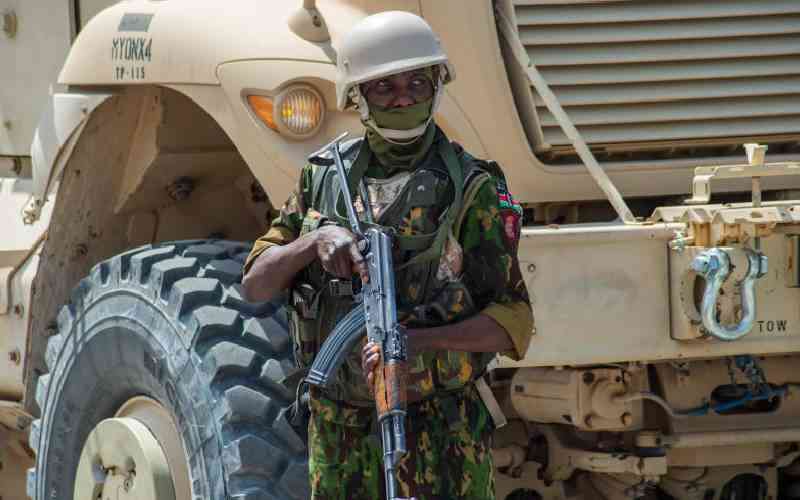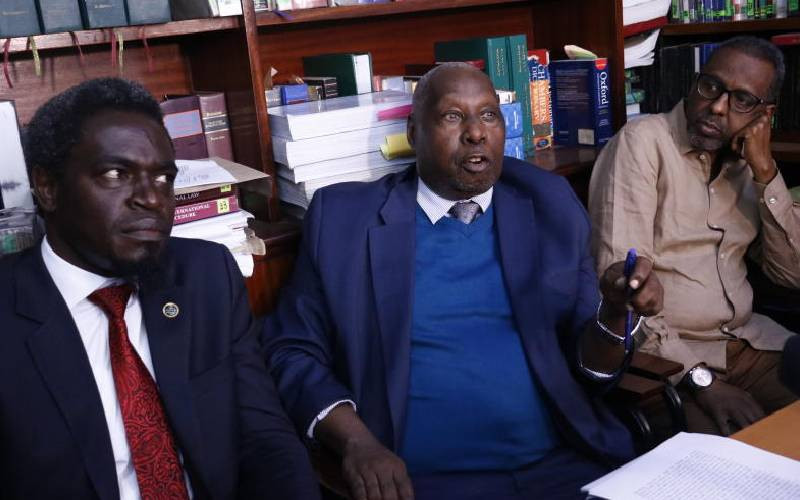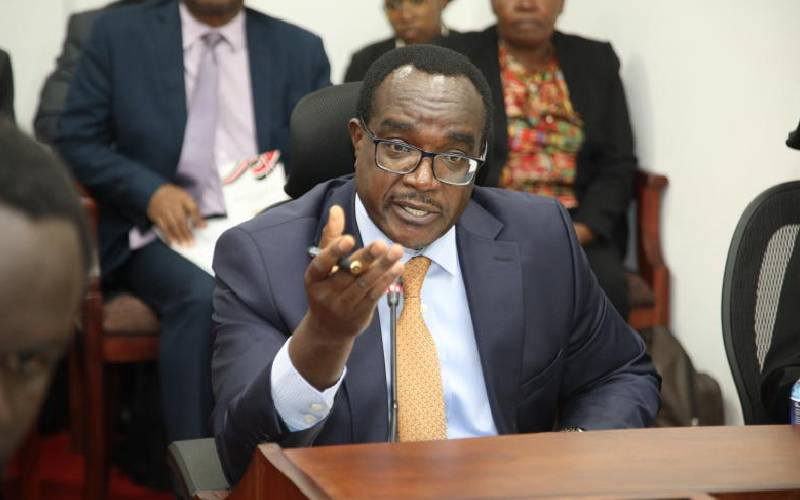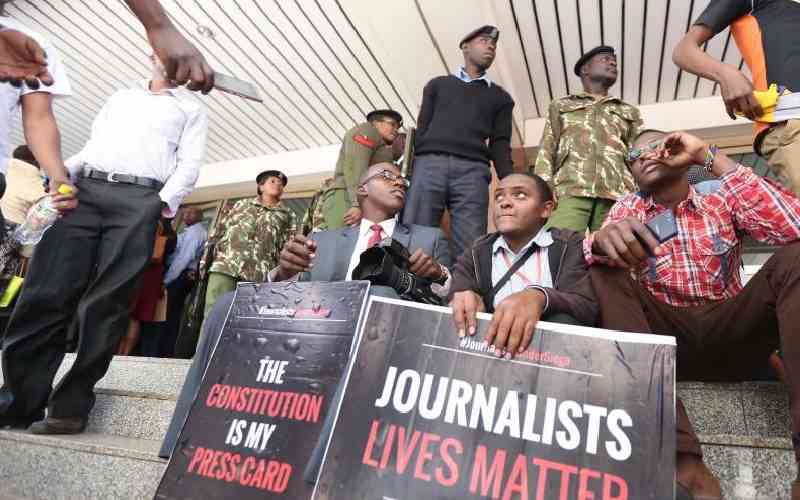
The last two decades have been stained by stories of police officers getting away with crimes against journalists.
From the March 2023 brutal attack on journalists covering Azimio la Umoja demonstrations, the beating of Standard journalist Nehemiah Okwemba, KTN videographer Timon Abuna and his colleagues Eric Isinta (NTV) and Mauritius Oduor (Citizen), Citizen journalist Reuben Ogachi to the high-profile shooting of Pakistani TV journalist Arshad Sharif, in 2022, the heinous murders of Francis Kaunda Nyaruri and John Kituyi in 2009 and 2015 respectively were all excesses against journalists.
Documented cases of police brutality against journalists reveal a troubling trend of shoddy or nonexistent investigations.
Since 2015, just about one per cent of case of journalists attacked by police have been investigated. However, there is no evidence as to whether any punitive action was taken against those found culpable.
The National Police Service (NPS) and the Independent Policing Oversight Authority (Ipoa) stand accused of being complicit in the failure to bring rogue officers to justice.
Media rights advocatesb say that failure by NPS, Ipoa and the Office of the Director of Public Prosecutions (ODPP) to promptly investigate and bring to justice those responsible for these attacks, not only shows systemic disregard for the rights of Kenyans to access information, but also demonstrates a culture of impunity. They say this undermines public trust in the institutions tasked with reining in bad cops
"At best, this suggests a systemic problem leading to cases of attacks against journalists getting low priority attention, and at worst it suggests collusion between the perpetrators and duty bearers," says Eastern Africa Editors Society Executive Director Churchill Otieno.
Otieno says it discourages new talent from joining the profession, makes the work of journalists harder than necessary.
"But more important society suffers ultimately since in nearly every case where a journalist is attacked its often as part of a wider scheme to block ills from being reported to the public."
Kenya Media Sector Working Group (KMSWG), an umbrella body of media rights actors, has repeatedly written to Ipoa and ODPP demanding updates and requesting prompt investigations into police misconduct and brutal attack on journalists.
Several other human rights groups, including individual journalists, have separately written to Ipoa, NPS and ODPP seeking answers on progress of investigations or arraignment, if any, in the cases involving police violence against journalists.
The group met with then-Inspector-General of Police Hilary Mutyambai and then-Director of Public Prosecutions Noordin Haji, both of whom confirmed their willingness and readiness to deal with offenders against journalists. The IG tasked his deputy in-charge of the Kenya Police Service, Njoroge Mbugua, with looking into the matter.
"However, not a single case has been resolved to my knowledge - in most cases it turns out that the complainants dropped the charges," Otieno says.
The journalists we spoke with allege that Ipoa and the aforementioned agencies responsible for accountability, always end up giving rhetorical responses such as "investigations are still ongoing" even in straightforward cases.
"I gave up following up my case with Ipoa after realising they were unwilling to investigate. They kept telling me that investigations were ongoing. It was exhausting after several months of pursuing my case," said a journalist who is a victim of police abuse. He did not want to be named in this article for safety reasons.
Police attack journalists covering Miguna's return from Canada
In 2017, a joint media monitoring report "Not Worth the Risk" by Human Rights Watch and ARTICLE 19 said there was no evidence that "any state actor has in the past five years been held accountable for threatening, intimidating, or physically attacking a journalist or blogger in Kenya".
Families, victims and media rights organisations want to press responsibility charges against the Inspector General of Police, the ODPP and Ioa for failing to carry out their constitutional duties.
IG's office is facing even more serious allegations of negligence and systematic cover-up of police officers accused of killing journalists, Francis Kainda Nyaruri in 2009 and Pakistani TV journalist Arshad Sharif in October 2022 at a roadblock in Kajiado County.
Ipoa is also under the spotlight for making little progress in these and many other cases since November 2022, after fresh evidence on the Nyaruri murder emerged. The family of Pakistani journalist Sharif on October 23 filed charges against Ipoa and NPS in Kenya's High Court.
Arshad was brutally killed by police officers, saying it had been a case of "mistaken identity". He had fled his home country to Kenya to escape arrest over sedition claims.
The murder of Nyaruri is one case that illustrates systemic failure to punish crimes against journalists. Nyaruri wrote for privately owned Weekly Citizen under the pseudonym Mong'are Mokua.
Before his death he allegedly wrote a story accusing a Nyamira OCPDof using low-quality roofing material in building the Nyamira Police Station. His decomposing body was discovered on January 29, 2009 in Kodera forest. His hands were bound behind his back and there were visible wounds on his back. That was 13 days after he went missing.
Following a protracted court case that took six years, in 2015 the case was thrown out for lack of evidence linking his supposed murderers to the crime. Eight years after the judgment, shocking details of a cover-up and failed investigations have emerged.
Nyaruri's family has written to the Inspector General of police, Ipoa and ODPP seeking a review of the police and prosecution files following new details placing senior police officers at the heart of Nyaruri's murder.
The basis of the review lodged with ODPP and Ipoa is damning disclosure that a taxi driver, Evans Mose Bosire, who was initially believed to have never given a statement to the police, did in fact give a statement in the presence of Chief Inspector Peter Mwangi, at Kisii Police Station on March 12, 2009, in which he implicated several persons, including senior police officers.
In a document seen by our team, Mose detailed an unsettling account of how he drove some people, including two police officers and Nyaruri to a hotel the day he disappeared. Mose's alleged confession is chilling and raises serious questions as to why this piece of crucial evidence was kept away from the court.
According to court documents, the investigating officers, Nicholas Mubeya and Julius Musoga arrested Mose days after he was found to be in possession of Nyaruri's mobile phone. Mose and his girlfriend Teresia Nyaboke used Nyaruri's phone on the evening of January 16, 2009, the day he disappeared and again on January 18. Mose was then released from police custody without explanation and then disappeared.
In the statement, Mose said he picked up and drove three men - known only as Kafupi, Nyambati and Bosco - who are believed to be members of a criminal gang "sungusungu" to the Zonic Hotel, located not far from the town of Kisii. The statement further said that when they arrived, Bosco made a phone call and two police officers emerged from the vicinity of Nyamira police station. The statement further alleged that the officers entered the hotel and then returned with a man who would later be identified as Nyaruri. The man was wearing a cap and carrying two newspapers.
Mose said he drove the three alleged gang members, two police officers and Nyaruri in his Toyota Corolla (KAM 488K) to allegedly arrest another "thief".
Mose claimed that while in the car, the men asked Nyaruri to identify himself, which he did by producing an ID card and said that he was a journalist, and not a thief.
In the statement, Mose further claimed that after Nyaruri identified himself, Bosco ordered that he drive them back to Kisii town, where the two officers exited his cab.
Mose and the three men then drove through Nyakoe market, where they picked another person who owned a welding shop at the market. He then drove the four men with Nyaruri through various markets before stopping at a forest on orders of Kafupi and Nyambati.
Kafupi then pulled Nyaruri from the vehicle, holding his shirt firmly, and the four men disappeared into the thicket with Nyaruri as Mose waited in the car. Approximately ten minutes later, the four reappeared from the thicket, but without Nyaruri. The man they had picked at Nyakoe market returned while wearing shoes, a jacket, and a cap that looked like the one Mose had seen Nyaruri wearing.
Mose went on to say that a week later, Nyambati - one of the four men - called him on phone to confess that indeed they killed Nyaruri and that they wanted him to take them back to the forest to burn Nyaruri's body with acid.
At some stage during the court hearing, the investigating officers, Musoga and Mubeya, testified that they were threatened while investigating Nyaruri's murder by then-Nyamira OCPD Lawrence Mwaura.
Another officer, OCS Robert Natwoli, who was initially in charge of the case, was forced to relocate from Nyamira after allegedly receiving death threats from several police officers and members of the Sungusungu gang.
Lawyers who offered to assist the family to seek justice too were also forced to flee from Nyamira due to credible threats and intimidation from then OCPD Nyamira.
Musoga, Mubeya and Natwoli abandoned the investigation and subsequently never appeared in court to testify again.
In his September 2015 judgment on the Nyaruri case, Justice Hilary Kiplagat Chemitei raised serious questions about the failure to interrogate key witnesses and suspects named by the deceased's family and other witnesses.
Justice Chemitei raised questions on the roles played by the Nyamira OCPD, who had allegedly been adversely mentioned by witnesses as the one who had threatened Nyaruri.
The judge also questioned the role played by Evans Mose, who was a star witness and a taxi driver, who had been mentioned in the initial evidence by investigating officers Musoga and Mubeya and why his statement under inquiry never made it to court.
Two suspects, Japheth Mange'ere Nyainda and Winfred Nyambati Nyakundi were acquitted on September 30, 2015 after prosecution failed to connect them with the murder of Nyaruri - ending a six-year emotional rollercoaster without justice.
Article 19 Eastern Africa Regional Director Mugambi Kiai says it is concerning that little seems to come out of investigations.
"Ipoa should do more to hold the police accountable. Also journalists should push Ipoa to share information on the cases," he says.
 The Standard Group Plc is a multi-media organization with investments in media platforms spanning newspaper print
operations, television, radio broadcasting, digital and online services. The Standard Group is recognized as a
leading multi-media house in Kenya with a key influence in matters of national and international interest.
The Standard Group Plc is a multi-media organization with investments in media platforms spanning newspaper print
operations, television, radio broadcasting, digital and online services. The Standard Group is recognized as a
leading multi-media house in Kenya with a key influence in matters of national and international interest.

